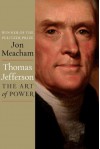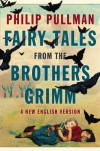Currently reading
400 Years Of Freethought
Thomas Jefferson: The Art of Power
Fairy Tales from the Brothers Grimm: A New English Version
Doubt: A History: The Great Doubters and Their Legacy of Innovation from Socrates and Jesus to Thomas Jefferson and Emily Dickinson
The Kingdom of Matthias: A Story of Sex and Salvation in 19th-Century America
The Greenback Era: A Social and Political History of American Finance, 1865-1879
 “Differences over currency and the related subject of banking have expressed basic American social and political antagonisms.” (He points to Joseph Dorfman’s 5 volumes of The Economic Mind, 3) Unger credits Beard with developing these themes, but criticizes the dualism of “Capitalist versus farmer, debtor versus creditor, East versus West, conservative versus radical, hard money versus soft money—these appear as successive guises of the same inherent division….although their names may vary, [they] always remain essentially the same.” (5) “Primarily this dualism may be defined as a contest between wealth in the form of land and wealth seeking outlets in commerce and industry.” (Quoting Potter, ed., Party Politics and Public Action, 1877-1917, p. 16. 5) This is incredibly important — if it’s a story about wealth vs. Wealth, that’s a lot different from wealth vs. Poverty. And, if it’s the story about an uneven transition from one form of wealth to another, then it has a completely different character from the (Hicks?) point of view. I may be able to use this in my banking transition argument.THESIS: “most men tried to strike a balance between their pocket books and their duty. This mixture of ethics and interest…must be recognized if we hope to understand the events of these years.” (8) Good, but do all people share this ambivalence equally, or are some more “ethical” and others more “interested?” We’re moving toward the Gilded Age, after all…I tend to agree with Unger’s conclusion that the Civil War did not “divide American history into an older rural-agrarian and a newer urban-industrial phase,” but not for the reasons he cites (407). Unger sees a continuity in traditions (Calvinism, agrarianism) that I think were already undergoing huge changes before the war—I’m more comfortable with accounts that see these changes as some of the causes of the Civil War, than with a story of old (and especially of ignorant old) traditions continuing to drive social and political thought almost to the twentieth century. I’m sure there was some of that, but I don’t see how this focus really complicates the dualism Unger criticized in the “Beardians.”
“Differences over currency and the related subject of banking have expressed basic American social and political antagonisms.” (He points to Joseph Dorfman’s 5 volumes of The Economic Mind, 3) Unger credits Beard with developing these themes, but criticizes the dualism of “Capitalist versus farmer, debtor versus creditor, East versus West, conservative versus radical, hard money versus soft money—these appear as successive guises of the same inherent division….although their names may vary, [they] always remain essentially the same.” (5) “Primarily this dualism may be defined as a contest between wealth in the form of land and wealth seeking outlets in commerce and industry.” (Quoting Potter, ed., Party Politics and Public Action, 1877-1917, p. 16. 5) This is incredibly important — if it’s a story about wealth vs. Wealth, that’s a lot different from wealth vs. Poverty. And, if it’s the story about an uneven transition from one form of wealth to another, then it has a completely different character from the (Hicks?) point of view. I may be able to use this in my banking transition argument.THESIS: “most men tried to strike a balance between their pocket books and their duty. This mixture of ethics and interest…must be recognized if we hope to understand the events of these years.” (8) Good, but do all people share this ambivalence equally, or are some more “ethical” and others more “interested?” We’re moving toward the Gilded Age, after all…I tend to agree with Unger’s conclusion that the Civil War did not “divide American history into an older rural-agrarian and a newer urban-industrial phase,” but not for the reasons he cites (407). Unger sees a continuity in traditions (Calvinism, agrarianism) that I think were already undergoing huge changes before the war—I’m more comfortable with accounts that see these changes as some of the causes of the Civil War, than with a story of old (and especially of ignorant old) traditions continuing to drive social and political thought almost to the twentieth century. I’m sure there was some of that, but I don’t see how this focus really complicates the dualism Unger criticized in the “Beardians.”








